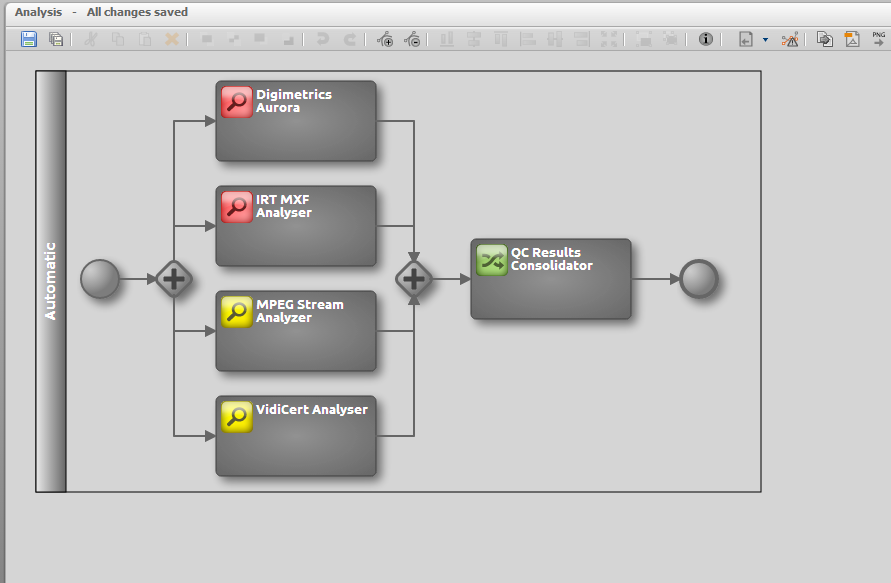Munich, 2. February 2013
MXF Quality Management Meeting in Munich
Quality Management in MXF Workflows
28th November 2013 – the MXF Legalizer technology was presented in a lecture and live demonstration at the MXF QC meeting in Munich. Jörg Houpert showed a new high-speed process to convert MXF files for improved interoperability and standard compliance. MXF Legalizer uses specialized integrated QC-Engines for the analysis process. The results of the QC-Engines are interpreted by an advanced rule engine which individually decides for each file which control setting will fit best for the MXF Legalizer repair process.
As the format constraints of the resulting MXF output file can be specified precisely, each file has the same container structure to behave the exact same way. The automatic detection and repair of inconsistencies between metadata in the MXF container and corresponding metadata in the essence bitstream was explained.
Increasing diversity of MXF file format problems
At IBC 2013 Cube-Tec showcased automated QC repair and correction of MXF files for highest interoperability. Automated quality control (QC) becomes more and more essential in a file-based production environment. Pure manual QC is no longer adequate as it will not scale with the increasing throughput. There are different needs for QC in the areas of ingest, file exchange, play-out and long-term archiving. MXF files with limited interoperability prevent smooth production flows and technical experts have to spend their valuable time checking every issue manually, this is time consuming and expensive. That is why the operational management is looking for QC solutions that not only detect MXF issues, but also repair them fully automatically.
Quality control with automatic repair
MXF standards and the validation of their compliance has to be improved. This will reduce interoperability problems when MXF files are exchanged between broadcast systems from different manufacturers. EBU has launched a strategic program for file based quality control and is developing standardized testing procedures in co-operation with industry partners.
At IBC 2013 the EBU QC group has introduced a periodic system of QC criteria (EBU Tech 3363 Quality Control Test Definitions). This periodic system harmonizes terms of quality description and offers best-practice approaches for file based QC. Cube-Tec has been an active participant from the beginning.
With their products Cube-Tec has moved already one step further. Cube-Tec has presented not only QC error detection for MXF files but also automatic repair. And even in cases where a full automatic repair is not possible, Cube-Tec has showcased optimized semi-automatic repair methods. These methods enhance the approval process for operators in difficult cases. The approval workflow can be defined with a graphical tool based on the open standard BPMN 2.0. The BPMN workflow can be directly converted into executable code.
At IBC 2013, Cube-Tec also introduced MXF Legalizer support for MXF files with AVC-Intra and DVC-Pro content repair.
Automated workflows to increase efficiency

with analysis modules demonstrated at IBC2013
There are currently different QC analysis tools on the market. Each has strong and weak features or checks only a part of relevant QC criteria. E.g. MXF Analyser is looking deeply into the MXF wrapper for standard conformity. Other tools observe the video transport stream and a third group is identifying errors in the base band.
Due to the technical co-operation with IRT, Digimetrics and Joanneum Research different products like IRT MXF Analyser, Aurora and VidiCert have been integrated into CubeWorkflow. This offers the unrivaled possibility to analyze MXF files at full scale and very deeply. CubeWorkflow can be configured according to fast changing requirements by using a different set of analysis tools. The results of the analysis are used to manage complex rules, finding automatically the best repair steps and reducing human interaction to a minimum. Even the integration of an external transcoding farm is supported. Although a transcoding farm can only provide a lossy operation, it may be the last chance to fix a MXF file that is no longer playable.

